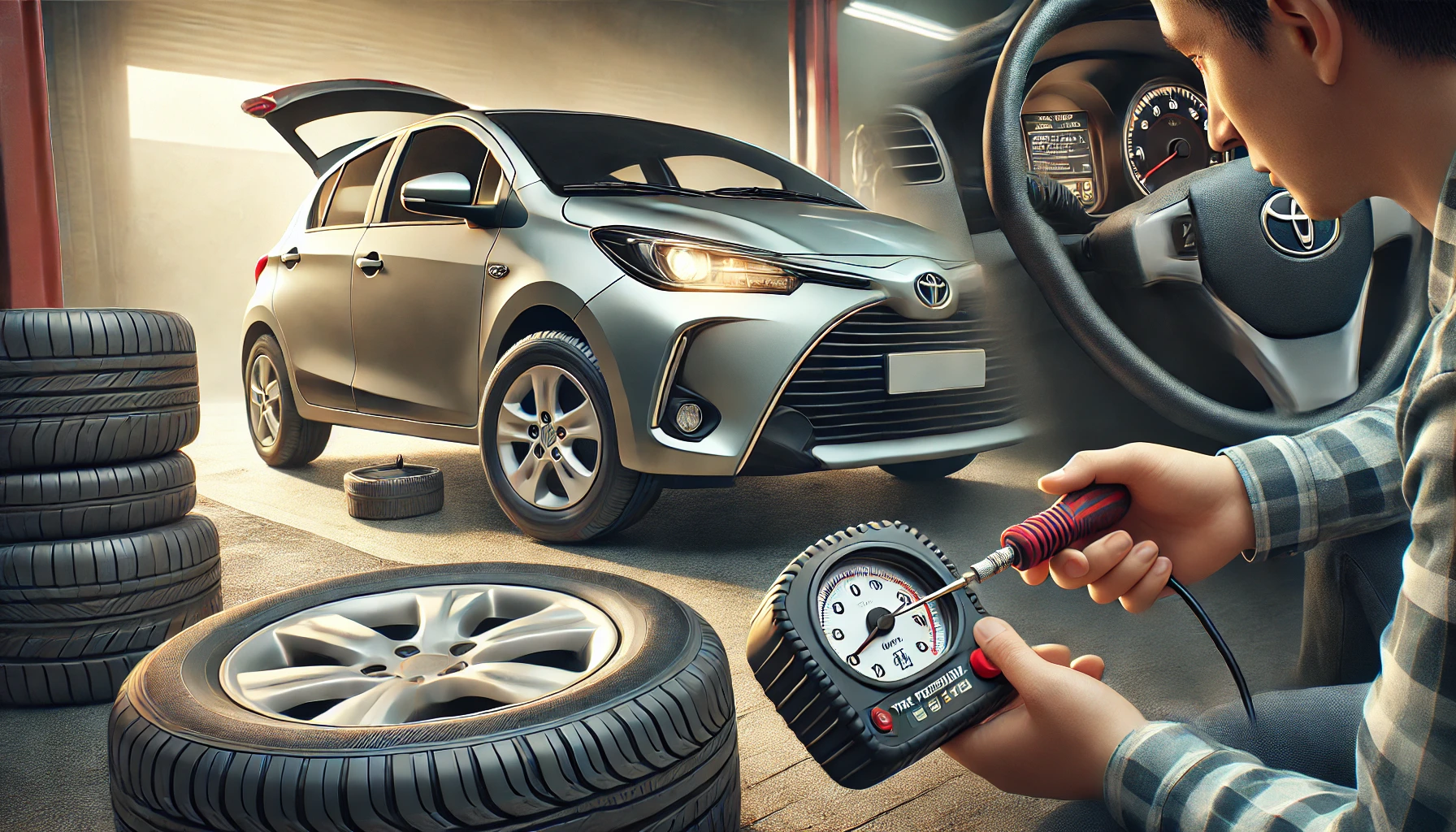
Common Causes of Tire Pressure Sensor Fault in a Toyota Yaris
- Low Tire Pressure: Sometimes, the simplest fix is the most overlooked. If your tire pressure drops below the recommended level, the sensor will alert you. Check the tires with a manual gauge to ensure they’re properly inflated.
- Damaged Sensor: Tire pressure sensors have a limited lifespan, typically around 5-10 years. If your Yaris is older, the sensor may be failing. A mechanic can diagnose this, but often a sensor replacement is needed.
- Battery Failure in the Sensor: Each sensor has a tiny battery that can eventually die, leading to sensor faults. Replacing the sensor is the only solution if the battery is dead, as it’s not designed to be replaced separately.
- Tire Change or Rotation: If the tires were recently rotated or replaced, the sensor may not have recalibrated properly. A reset through the vehicle’s onboard system can resolve this.
- Interference or Malfunction in the ECU: The electronic control unit (ECU) that communicates with the sensor may have a glitch. A hard reset of the system could clear the fault.
How to Fix the Tire Pressure Sensor Fault:
- Check Tire Pressure:
- Use a gauge to check the pressure in all four tires. For the Yaris, the standard is usually 32 PSI but check your owner’s manual to confirm. If low, inflate to the correct pressure.
- Reset the TPMS System:
- Turn the key to the “ON” position, but don’t start the car.
- Locate the TPMS reset button under the steering column or dashboard.
- Hold the button until the TPMS light blinks three times.
- Start the vehicle and drive at least 10-20 minutes at a speed above 25 mph to recalibrate the system.
- Replace Faulty Sensors:
- If a specific sensor is faulty, you’ll need to visit a shop where they can scan the sensor to identify which one is not working. Replacing a sensor usually costs between $50-$150 per wheel.
- Professional Diagnostic:
- If the fault persists, it’s best to have a professional mechanic inspect the car for any issues with the ECU or wiring.
